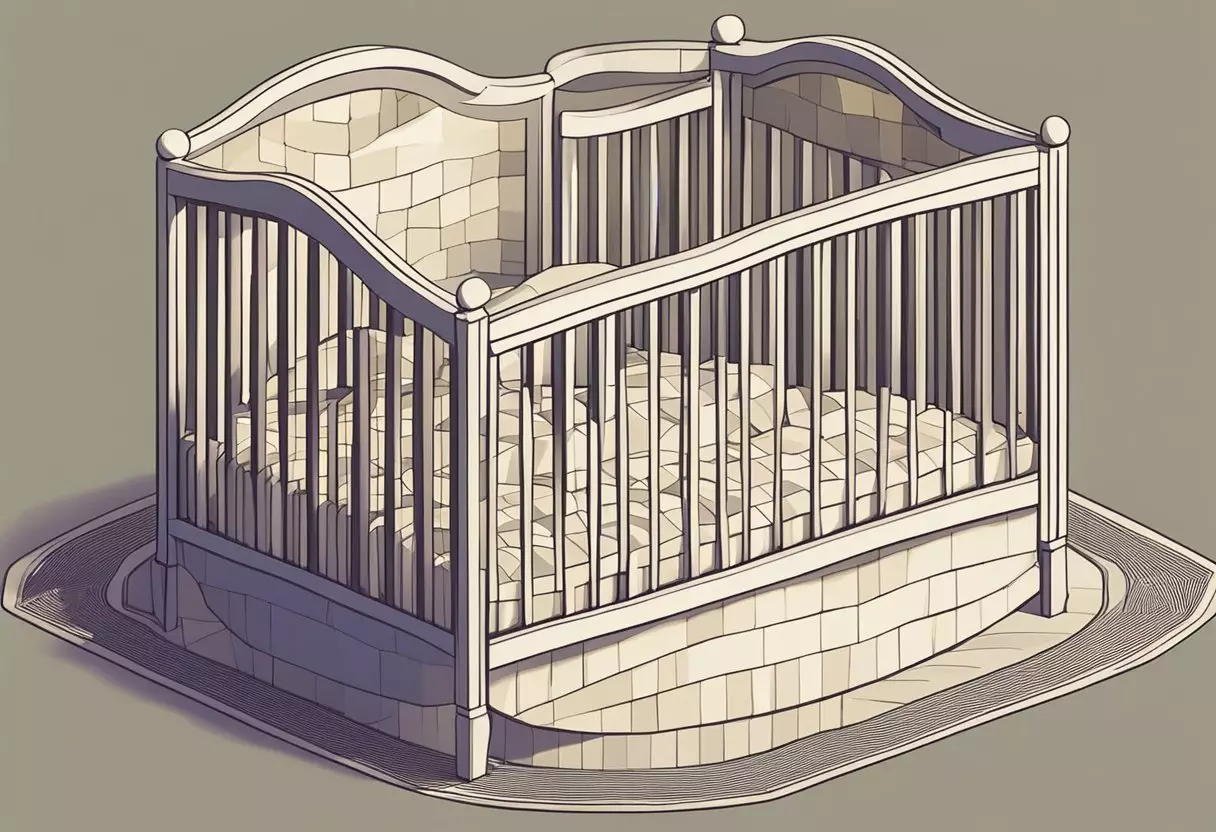Baby Name Tristan: Choosing a Timeless Moniker
Choosing a name for your baby is an enchanting experience, filled with hopes and possibilities. If you’ve been considering the name Tristan for your little one, you’re likely drawn to its melodic sound and rich heritage. Tristan, a name of Celtic origin, carries with it a sense of knightly romance and enduring legend. While the meaning behind the name boasts various interpretations, including “noise or sorrowful” or even “sad,” these bittersweet nuances add a layer of depth to its allure.

As names can shape first impressions, you may find Tristan’s blend of softness and strength particularly appealing for your baby boy. Over time, Tristan has seen a notable rise in popularity, steadily climbing the ranks of favored baby names. This could be due to its ‘an’ ending, which is a common and well-liked trend amongst baby names today. Additionally, Tristan has transcended gender boundaries, being chosen for baby girls as well, making it a versatile option for any parent.
The literary ties to the legend of Tristan and Iseult, where Tristan is a valiant knight, bestow an air of classic nobility to the name. Known throughout medieval folklore, and revived through art and opera, the name carries with it an epic blend of love, adventure, and tragedy—elements that continue to captivate the imagination. Whether it speaks to your love of stories, your Celtic roots, or simply resonates with your sense of style, Tristan is an enchanting choice that will accompany your child through all walks of life.
Table of Contents
Historical and Literary Significance
When you explore the name Tristan, you uncover a treasure trove of cultural richness, from poignant romance to timeless tales. This name isn’t just a label; it’s steeped in a narrative that has resonated through the ages.
Tristan and Isolde Legend
The legend of Tristan and Isolde is at the heart of the name’s historical significance. A tale of passionate love and tragic circumstances, it involves Tristan, a knight of the Knights of the Round Table, and Isolde, an Irish princess. Their romance is often associated with the Celtic term triste, reflecting a sense of melancholy entwined in their story. This Arthurian legend embodies the concept of heroic tragedy that pervades many Celtic tales.
Medieval Literature
In medieval literature, Tristan emerges as an admirable yet sorrow-stained hero. His adventures are chronicled in various texts, symbolizing the chivalric values of the era. Welsh sources refer to him as Drystan, illustrating the name’s Celtic origins. These narratives not only entertain but provide a lens into the societal values and romantic ideals of the medieval period.
Modern Adaptations
Fast-forward to recent times, the essence of Tristan’s story continues to inspire. From opera to modern storytelling, the pathos of his and Isolde’s doomed love affair captivates audiences worldwide. It’s a testament to the timeless nature of a good love story and its ability to adapt to the contemporary palate without losing the charm of its romantic and heroic roots.
Etymology and Origin
When choosing a name for your baby, you might find the name Tristan’s rich historical background and linguistic journey intriguing, stemming from a blend of Celtic origin, Old French influences, and a presence in romance languages.
Name Origin
The name Tristan likely has its roots in the Celtic name Drustan, a diminutive of Drust. This is supported by its appearance in Welsh sources where it was spelt as Drystan. Interestingly, this name became prominent in French tales and is linked to the legendary Tristan, a figure in Arthurian romance. This character’s popularity spread the usage of the name in various forms.
- Welsh Origin: The original form, Drust or Drystan, suggests valiance and riot.
- French Connection: The name evolved in Old French, becoming associated with the term “triste,” meaning “sad” or “sorrowful”.
Linguistic Evolution
Through the centuries, Tristan has undergone a fascinating transformation, reflecting both a linguistic evolution and culture’s impact on names.
- Old French: The tales of Tristan and Iseult possibly altered the name to include the connotation of “sad,” due to the Old French triste.
- Romance Languages: As Tristan dispersed into Romance languages, including English, it maintained its melancholic undertone while being embraced in various cultures.
The journey of the name Tristan from its Welsh and Celtic origins through its evolution in Old French and embracing by romance languages showcases its adaptability and enduring popularity.
Cultural Impact and Popularity

The name Tristan resonates with historical gravitas and modern charm, experiencing waves of popularity influenced by cultural milestones and celebrity choices.
Popularity Over Time
Tristan has experienced varying degrees of popularity over the years. Its noble roots can be traced back to the Arthurian legends, where Tristan is depicted as a knight of the Round Table. This historical association has maintained the name’s charisma and appeal through the centuries.
In the United States, Tristan has frequently ranked within the top 1000 most popular baby boy names for over five decades, according to Mom Loves Best. It hit a notable peak in 1996, when it secured a position as the sixty-eighth most common name in the country.
Celebrity Influence
The name’s allure in modern times can be partly attributed to its adoption by celebrities for their children. When Brad Pitt portrayed a character named Tristan in the film “Legends of the Fall,” its popularity saw an upturn, as audiences often associate the glamour and charisma of on-screen characters with the names they bear.
More recently, celebrities like Chris Hemsworth and Elsa Pataky have also chosen Tristan for their offspring, reinforcing its trendiness among new parents who look up to celebrity baby names as inspiration. This phenomenon helps to sustain and increase the name’s prevalence in American naming culture and ensures its continued popularity.
Name Variations and Pronunciation
When you’re exploring the name Tristan for your baby, you’ll find there are several variations to consider. Additionally, the pronunciation may differ depending on the variation and regional dialect.
Gender Variations
- Tristan: Most commonly a male name, but it’s also considered gender-neutral.
- Tristen: A variant that is used for both boys and girls, embodying a modern twist on the classic spelling.
- Tristin: Another unisex option that adds a distinct character to the traditional name.
- Triston: This spelling variation leans towards a masculine feel, though it remains gender-inclusive.
- Trystan: A variant that retains the name’s Welsh roots and is used irrespective of gender.
- Tristian: Although less common, this form presents a unique choice for any gender.
International Versions
Different cultures have embraced and modified Tristan, creating international versions of the name. Here’s a brief list:
- French: Tristan, a classic version, which may be influenced by the French term “triste,” implying a sad or wistful quality.
- Welsh: Drystan, directly connected to the name’s origins, is a variant that highlights cultural authenticity.
- Spanish: Tristán, typically pronounced with a stress on the last syllable, demonstrates the name’s adaptability to Spanish phonetics.
- German: Tristran or Tristram, with “Tristram” harking back to earlier medieval forms and potentially suggesting a chivalric or noble quality.
In terms of pronunciation, the most common pronunciation in English-speaking regions is “TRIS-tan.” However, in varying dialects or languages, you may hear subtle differences such as a softer ‘T’ or a rolled ‘R.’ It’s wise to consider these possible pronunciations if you’re looking for a name that’s easily understood and pronounced in various cultures.
Choosing the Name Tristan
When you pick the name Tristan for your baby boy, you’re selecting a name with a rich history and a gentle, literary charm. It blends well with current naming trends while maintaining a touch of uniqueness.
Similar Names
If you’re drawn to the name Tristan but are looking for alternatives to consider, you might want to think about names that share a similar sound or origin. Here’s a list:
- Gavin: Also of Celtic origin, sharing a knightly elegance.
- Dylan: A Welsh name like Tristan, with a lyrical quality.
- Declan: An Irish name with a modern feel, fitting nicely with current trends.
Name Pairings
Finding a harmonious pairing for the name Tristan can be a delightful task. You might consider complementing it with equally poetic sibling names or finding a perfect middle name match. Here are some suggestions:
Sibling Names:
- Liam: A strong, popular choice for a brother, echoing Tristan’s Celtic roots.
- Ava: For a sister, Ava offers a similar level of popularity and simplicity.
Middle Name Pairings:
- Tristan James: Balances the uncommon with the classic.
- Tristan Alexander: Both names carry a regal tone.
By considering these alternatives and pairings, you can ensure the name Tristan sits well within your family’s naming style and preferences.
